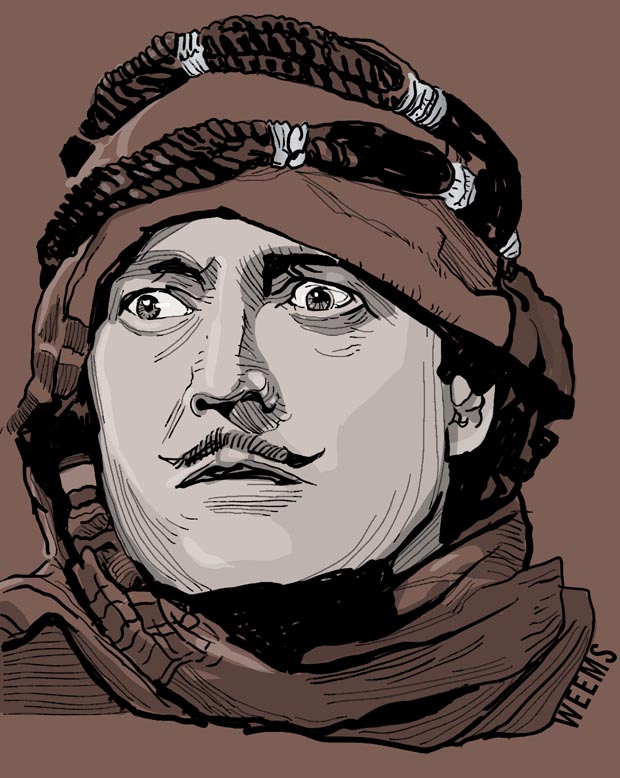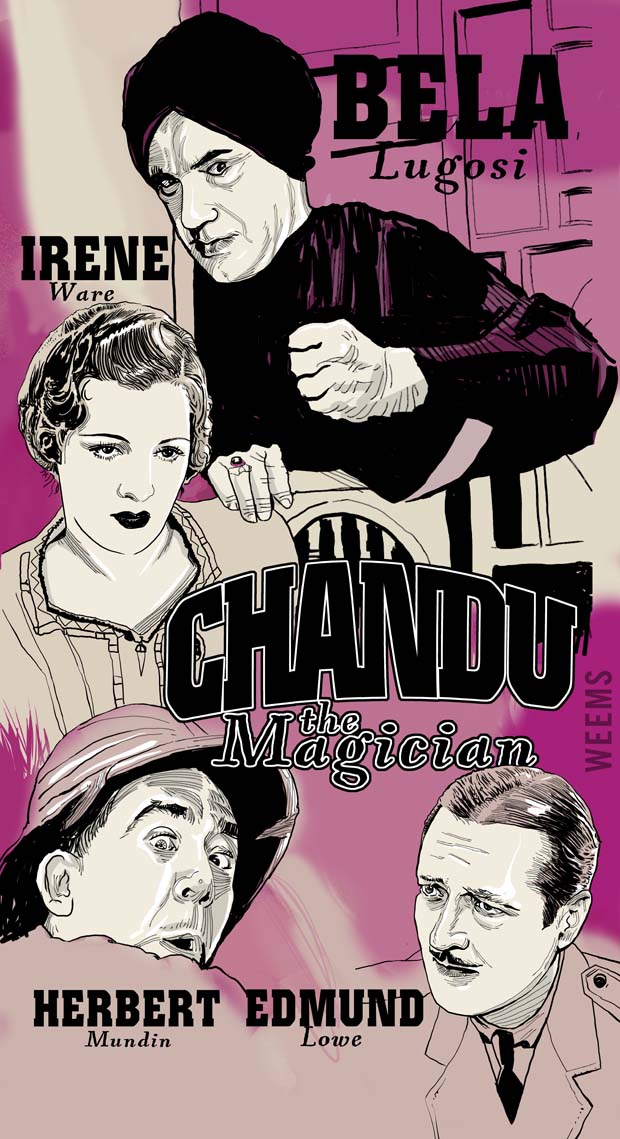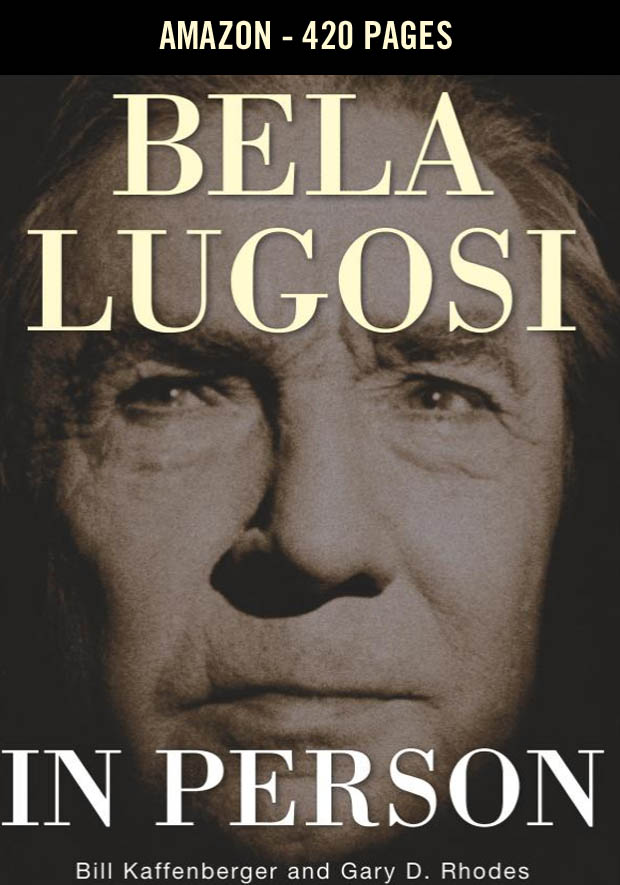Chandu the Magician - 1932

Chandu the Magician - Released September 18, 1932. Directed by William Cameron Menzies and Marcel Varnel
In Chandu the Magician, Bela Lugosi, still bathed in the fame of the 1931 Dracula, now as Roxor the evil magician, delivers his lines with the same intensity as the Count, but is also still working on his English (he calls Chandu "my ahnemy") and mostly steals the show from the other featured players in this 1932 adaptation of the radio program.
Edmund Lowe is Chandu, and as the film starts up, we see him graduating to become one of the yogis of a company of yogis (who are dressed like Hindus but speak in sentences that copycat the King James Bible). These men use their mystical powers to police the world and especially to fight evil magicians utilizing similar mystic powers. Like a graduation dissertation of his skills, Chandu then displays his power for us. He walks on fire undeterred by the flames. He creates an astral projection duplicate of himself that walks above him. He commands a rope to vertically stand into the air without any supports, and a young man climbs the rope to the top and disappears into the ether. The tricks now over (we never see the disappeared man again and like the magic power of Doctor Strange*, Harry Potter, or Gandolf the Grey, how any of this is possible isn't explained), the movie gets down to business and we learn that Chandu, "alone of his race," has been allowed to learn the way of the yogis, and is now required to fight in defence of "goodness, that which is noble, that is which is sane." We also learn that Chandu is in love with Princess Nadji (Irene Ware) of Egypt, but she can't be interested because she has dedicated her life to serving her people and this allows no time for love.
Meanwhile, Roxor (Bela) is culminating a plan to steal a "death ray" device from scientist Robert Regent (played by Henry Walthall) which he plans to use to rule the world, happily describing how he will destroy civilization and reduce humankind to a state of savagery (speaking of such goals, this being a film of 1932, an obvious parallel is created. 1932 is the same year Adolf Hitler rose to power in Germany, and with this in mind, watching Bela, dressed in a black uniform, and pretending to rave like a madman, he seems like a cartoon version of Hitler** from contemporary news reel films).
Chandu is drawn into the case when Roxor has the scientist's family kidnapped, and using them as leverage, Roxor pressures the resisting Robert Regent to explain how to use the death ray device (the obvious question that comes to us but is never answered in the film is why Regent built this death ray in the first place, something so destructive and powerful that when Roxor obtains it he promptly titles himself "Roxor the god").
The enormous 'death ray' machine itself looks like a combination of a telescope, a cannon, and a hyperdermic needle with a gigantic Edison light bulb stuck onto one end. Roxor intends to use this new technology to cancel all other technologies, but as the mystic Roxor cannot understand how the 'death ray' works and needs instruction, the film script (by Barry Conners and Philip Klein***) creates a clever secondary clash between the world of electrical technology and the occultic world of Roxor/Chandu and the yogis.
Chandu the Magician is a film often dismissed in film books with a few lines giving the movie a drubbing, often taking time to say Bela stands out but that Edmund Lowe is terribly miscast as Chandu. A 21st century viewing of the film is more sympathetic. Elements of Chandu show up in so many other later films that it seems like a hidden progenitor of tales that cross over into a whole galaxy of other genres. The foreign adventure of Indiana Jones movies, 1999's The Mummy, and 20th and 21st century magical wizards in general all have a line of descent from Chandu, not to mention the general sense of possessing superhero powers straight out of a comic book at a time when the comic book didn't yet exist.
Herbert Mundin is in Chandu the Magician as the comical character Albert Miggles, Chandu's sidekick, mugging at the camera and whimpering like a child when threatened (and he gets threatened a lot in this film). Also, he is an important element of a traveling party in exotic lands that packs along comedic relief just like food and water (a paradigm imitated in so many later Hollywood movies about trans-sand traveling).
Edmund Lowe and the rest of the cast are bound by the early sound technology of talkies, and the way the characters are often strewn about chairs and standing by static objects makes any scene with dialogue a sometimes starchy affair. The exception is Bela, who goes way over the top at times, but nonetheless enlivens any scene he is in and is inventive in the way he responds to whatever the other actor on the screen is doing (or not doing, as the case may be. Perhaps he is at his most extreme when isolated onto the screen alone to directly rave at the audience.) Lowe is nowhere near as poor as past reviewers make out, he is simply as stately and stiff as the rest of the cast, but in wordless sections he's actually quite good (for example when he is disguised and on a rescue mission at the slave auction house), and he plays his part with earnest professionalism.
Probably the main impediment film reviewers have is not Edmund Lowe but that Chandu is so clearly aimed at the maturity and intelligence level of a child, and the story itself, with the romance between Chandu and Princess Nadji, to Miggles' goofy slapstick, is best seen through the eyes of a nine-year old (though making Miggles an alcoholic tormented by Chandu's tricks preventing him from imbibing is strange comedy for a kid's tale). Chandu's clearest failing is not establishing an adult level of story above the childish one (something that has been done in other films, such as the Harry Potter movies) and instead Chandu the Magician mixes the two elements together and this creates a muddle.
The art direction for Chandu by William C. Menzies is first rate, and the spectacle of some of Chandu's sets reminds the viewer of the spectacle of a 1930's De Mille film, or the early Warner's Tarzan. Chandu's photographic special effects are also well done, and in the original release were probably as important to the movie as the characters themselves.
The cleaned up print used in the HD Blu Ray edition helps makes Chandu one of those few early 1930's films that still has sharp, clean and delicately embellished visuals.
Though the story mentions various Egyptian gods, the Greek Fates, and Hindu gods, too****, not to mention Roxor's claim that he himself has become a god by gaining the 'death ray,' the actual power here resides in Menzies' direction and the trick photography of James Wong Howe.
Amazon - Chandu the Magician Blu-ray
FOOTNOTES:
*Marvel Comics writer Stan Lee has said that superhero magician Doctor Strange is based on Chandu the Magician.
**The scripting work has many fathers: IMDB lists Barry Conners, Philip Klein, Harry A. Earnshaw, Vera M. Oldham, R.R. Morgan, Guy Bolton, Bradley King, and Harry Segall.
*** A swastika design on wall tile appears in the backdrop in one scene of the Chandu the Magician, utilized presumably for its historical value as an emblem related to shamanism and not for the connotations related to Hitler and the National Socialist Workers Party of Germany.
**** But no mention of the Biblical God, as close as we get to it is that Roxor declares that like "Samson's power was in his hair, Chandu's power is in his eyes" such that the remaining story of the film features the bad guys trying to claw Chandu's eyes out. In the biblical telling, Samson prayed and received his power from the God of the Bible. In Chandu the Magician, the power source for Chandu isn't ever elucidated, nor is it for Roxor, we are left to guess as to the source of their mystical strength.

Amazon - Bela Lugosi in Person - 420 pages
Amazon - No Traveler Returns: The Lost Years of Bela Lugosi - 346 Pages
Frankenstein Created Woman - 1967
Frankenstein meets the Wolfman - 1943
What's Recent
- Grand Exit - 1935
- Island of Desire - 1951
- Road to Morocco
- The Devil and Miss Jones - 1941
- Sinners - 2025
- Something for the Boys - 1944
- The Mark of Zorro - 1940
- The Woman They Almost Lynched - 1953
- The Cat Girl - 1957
- El Vampiro - 1957
- Adventures of Hajji Baba – 1954
- Shanghai Express 1932
- Pandora's Box – 1929
- Diary of A Chambermaid - 1946
- The City Without Jews - 1924
- The Long Haul
- Midnight, 1939
- Hercules Against the Moon Men, 1964
- Send Me No Flowers - 1964
- Raymie - 1964.
- The Hangman 1959
- Kiss Me, Deadly - 1955
- Dracula's Daughter - 1936
- Crossing Delancey - 1988
- The Scavengers – 1959
- Mr. Hobbs Takes A Vacation - 1962
- Jackpot – 2024
- Surf Party - 1964
- Cyclotrode X – 1966
Original Page Jan 2020
